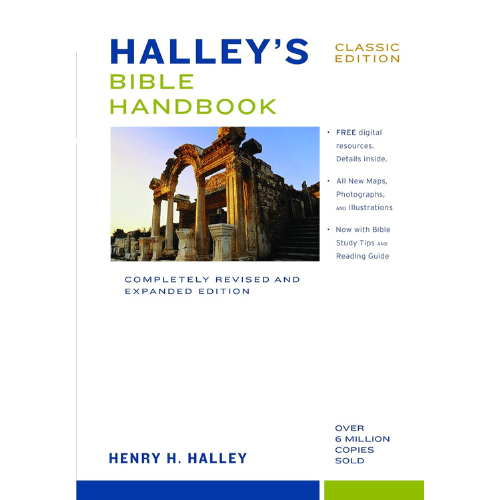Have you ever wondered how we can stand firm in faith while facing trials? The Book of First Peter answers this question by calling us to live with holiness and humility, even in suffering. Written to believers enduring persecution, this letter reminds us that hardships refine our faith and draw us closer to Christ.
Peter, once an impulsive fisherman, now speaks as a seasoned leader, encouraging us to embrace God’s grace and eternal promises. Although written centuries ago, this message remains powerful today. We live in a world that often rejects God’s truth, yet we are called to shine as His people.
Through this study, we will explore how the Book of First Peter teaches us to navigate trials, submit to God’s will, and live with unwavering hope. Let’s discover how holiness and humility lead to a life that honors Christ!
Writer of the Book of First Peter
The Book of First Peter was written by the Apostle Peter, also known as Simon Peter. Before following Jesus, he was a fisherman (Matthew 4:18-20). Yet, Jesus saw his potential and called him to become a “fisher of men.”
Peter was bold, passionate, and often spoke before thinking. However, despite his zeal, he famously denied Jesus three times (Luke 22:61-62). But Jesus restored him, strengthening his faith and preparing him for leadership. After Pentecost, Peter became a powerful voice for the gospel, leading many to Christ.
His experiences shaped the Book of First Peter, where he encourages suffering believers. He knew the pain of failure and the power of redemption. His letter reflects his journey from impulsive disciple to steadfast leader. Because of its content and style, scholars widely affirm Peter as the author. His words continue to inspire us to stand firm in faith.
Date Written
The Book of First Peter was likely written between A.D. 62–64, during the reign of Emperor Nero. This was a dangerous time for Christians, as hostility toward them was increasing.
Peter probably wrote this letter from Rome, symbolically calling it “Babylon” (1 Peter 5:13). Around A.D. 64, the Great Fire of Rome devastated the city, and Nero blamed Christians, leading to intense persecution. Because the Book of First Peter emphasizes enduring suffering, it was likely written just before or during this crisis.
During this time, believers faced rejection, imprisonment, and even death for their faith. Yet, Peter encouraged them to stand firm, reminding them of their eternal inheritance. His message still speaks to us today, as we navigate trials and opposition. Though written long ago, this letter remains a source of strength, urging us to trust God no matter the circumstances.
To Whom Written
The Book of First Peter was written to believers scattered throughout Pontus, Galatia, Cappadocia, Asia, and Bithynia (1 Peter 1:1). These regions, located in modern-day Turkey, were home to both Jewish and Gentile Christians.
Many of these believers faced social rejection, persecution, and hostility from both their neighbors and Roman authorities. Because they refused to worship Roman gods, they were often treated as outcasts. Yet, Peter reminded them that they were God’s chosen people, set apart for His purposes.
Though they suffered, they had an eternal inheritance waiting for them. Peter encouraged them to stay strong, live holy lives, and reflect Christ’s love. Even today, we can relate to their struggles. As followers of Jesus, we sometimes feel like strangers in the world. However, just like them, we are called to stand firm and trust in God’s promises.
Purpose of the Book of First Peter
The Book of First Peter was written to encourage believers facing persecution and hardship. Life as a Christian in the first century was difficult, but Peter reminded them that their hope was in Christ.
One key purpose of this letter was to strengthen perseverance in trials (1 Peter 4:12-13). Peter reassured them that suffering was not meaningless but refined their faith like gold (1 Peter 1:6-7). Though hardships felt overwhelming, God would ultimately reward their endurance.
Peter also called them to holiness (1 Peter 1:15-16). Since they were God’s people, they needed to live differently, reflecting Christ’s character in a world that rejected Him.
Another purpose was to remind them of their identity in Christ (1 Peter 2:9-10). Though society rejected them, God had chosen them as His own.
Finally, Peter taught believers how to live godly lives in a hostile world (1 Peter 2:12). He urged them to remain humble, submit to authority, and trust God’s sovereignty.
Even today, we can find comfort in Peter’s words. No matter what trials we face, our hope in Christ remains unshaken!
📖 Explore the Old Testament from start to finish with this easy-to-follow study guide! 🔍 Grow in faith and understanding—get your copy today!✨
Historical Context of the Book of First Peter
The Book of First Peter was written during a time when Christianity was seen as a threat to Roman society. Most Romans worshiped multiple gods, and Christians, who refused to participate, were often viewed as atheists and outcasts.
During Emperor Nero’s reign (A.D. 54-68), hostility toward Christians grew rapidly. After the Great Fire of Rome in A.D. 64, Nero blamed Christians, leading to widespread persecution, imprisonment, and executions. Believers lived in fear, yet Peter encouraged them to stand firm in faith.
This letter also addressed slaves, wives, and citizens, showing them how to honor God in a hostile culture. Peter urged them to submit to authorities (1 Peter 2:13-17), not by compromising truth, but by demonstrating godly character.
Though persecution was intense, Peter reminded them that their real citizenship was in heaven. Even today, the Book of First Peter teaches us how to live faithfully in a world that often rejects Christ. No matter what we face, we can trust that God is in control!
Key Themes in the Book of First Peter
The Book of First Peter encourages believers to stand firm in faith, even when facing trials. Peter reminds us that suffering is temporary, but our hope in Christ is eternal. Several key themes run throughout this powerful letter.
Suffering and Persecution
Trials may feel overwhelming, but they refine our faith like gold (1 Peter 1:6-7). Peter assures us that suffering is part of the Christian journey. Jesus Himself endured rejection and pain, yet He remained faithful. Likewise, we must trust that God is using our struggles for His glory.
Holiness
As followers of Christ, we are called to live differently from the world (1 Peter 1:15-16). Holiness means being set apart for God, both in our actions and our attitudes. Peter challenges us to pursue purity, obedience, and godly character in every area of life.
Hope in Christ
Peter reminds us that our inheritance is eternal (1 Peter 1:3-4). No matter what hardships we face, our future is secure in Christ. Because of His resurrection, we have a living hope that cannot be taken away.
Submission and Humility
Peter teaches that submission is an act of trust in God (1 Peter 2:13-25). Whether in relationships, work, or society, we honor Christ by showing respect, patience, and humility. Even when treated unfairly, we follow Jesus’ example by responding with grace.
Spiritual Identity
As believers, we are God’s chosen people (1 Peter 2:9). Though the world may reject us, we belong to God’s kingdom. Our identity in Christ gives us purpose, confidence, and a reason to live differently.
Each of these themes strengthens our faith and points us to Christ’s perfect example. The Book of First Peter continues to inspire us to live boldly for God!
Major Events/Stories in the Book of First Peter
Although the Book of First Peter is not a narrative, it contains powerful teachings that encourage believers to remain faithful. Peter reminds us that suffering has purpose, holiness is essential, and our hope in Christ is secure.
Born Again to a Living Hope (1 Peter 1:3-9)
Peter opens his letter by celebrating the new life we have in Christ. Because of Jesus’ resurrection, we have a living hope and an imperishable inheritance in heaven. Even when we face trials, our faith is being refined for God’s glory.
Be Holy as God is Holy (1 Peter 1:15-16)
Peter calls us to a higher standard of living. Since God is holy, we must also strive for holiness in our thoughts and actions. Living set apart from the world reflects our true identity in Christ.
The Living Stone and a Chosen People (1 Peter 2:4-10)
Jesus is the Living Stone, rejected by men but chosen by God. As believers, we are part of God’s spiritual house and His holy nation. Even when the world rejects us, we remain precious in God’s sight.
Submission to Authorities (1 Peter 2:13-25)
Peter teaches that we must respect earthly authorities, even when treated unfairly. Just as Jesus suffered unjustly, we are called to follow His example. Submitting with humility brings honor to God.
Instructions for Wives and Husbands (1 Peter 3:1-7)
Peter gives guidance on godly marriage. Wives are encouraged to respect their husbands, while husbands are called to honor their wives. A Christ-centered marriage reflects God’s design for unity.
Fiery Trials and Christian Suffering (1 Peter 4:12-19)
Peter warns that suffering is part of the Christian life. However, we should rejoice because our suffering connects us to Christ’s own experience. Our faithfulness in trials brings eternal rewards.
Each of these teachings strengthens our faith, encourages perseverance, and points us toward God’s ultimate plan!
Halley’s Bible Handbook, Classic Edition
The bestselling Bible handbook of all time with millions of copies sold, the Halley’s Bible Handbook makes the Bible’s wisdom and message accessible to everyone.
Theological Contributions of the Book of First Peter
The Book of First Peter offers deep theological insights that shape our understanding of faith, suffering, and our identity in Christ. One of its central teachings is the role of suffering. Peter assures us that hardships are not meaningless; instead, they purify our faith like gold (1 Peter 1:6-7). Rather than being discouraged, we should see trials as a way to grow closer to God.
Peter also emphasizes that Christ is the Cornerstone of our faith (1 Peter 2:4-6). Though the world rejects Him, He remains the firm foundation upon which we build our lives. Because of Him, we are no longer outsiders—we are God’s chosen people, set apart for His purposes (1 Peter 2:9-10).
Additionally, the Book of First Peter reminds us to keep an eternal perspective. Our hope is not in temporary things but in the inheritance waiting for us in heaven (1 Peter 1:3-4). Peter’s teachings align with Paul’s, reinforcing salvation by grace and godly living. Just as Jesus’ suffering led to glory, our trials also have eternal significance. No matter what we face, we can trust that God is shaping us for something greater!
Special Consideration in the Book of First Peter
The Book of First Peter has several unique aspects that make it both rich and practical for believers. One key feature is Peter’s frequent use of the Old Testament. He references Isaiah, Psalms, and Proverbs, showing how Jesus fulfills prophecy and God’s redemptive plan. This strengthens our confidence in Christ as the promised Messiah.
Another remarkable aspect is Peter’s personal transformation. Once impulsive and quick-tempered, he became a bold but compassionate leader. His journey from denying Jesus to shepherding the church adds weight to his encouragement. He understood both failure and redemption firsthand.
One of the most debated passages in the Book of First Peter is 1 Peter 3:18-20, where Peter mentions Christ preaching to the “spirits in prison.” Scholars offer different interpretations, but the passage highlights Jesus’ victory over sin and death.
Unlike some theological-heavy books, First Peter focuses on practical Christian living. Peter teaches us how to face trials, submit to authority, and love others well. His letter encourages us to apply faith in daily life, making it deeply relevant. These elements make the Book of First Peter a powerful guide for both personal growth and church teaching!
Final Thoughts on the Book of First Peter
The Book of First Peter is a powerful reminder that faith in Christ sustains us through every trial. Peter’s words encourage us to stand firm, live holy lives, and walk in humility. Even when the world rejects us, God calls us His chosen people and secures our eternal future.
Although suffering may seem overwhelming, Peter assures us that it is temporary and refining. Our trials are not meaningless; they shape us into stronger, more faithful believers. Just as Jesus endured suffering and was glorified, we too will share in His victory.
Peter’s message is just as relevant today as it was in the first century. We still face challenges, opposition, and struggles, but our hope remains unshaken. The Book of First Peter reminds us to keep our eyes on eternity and trust in God’s promises. When we live boldly for Christ, we find true peace, strength, and joy!
Frequently Asked Questions (FAQ) Book of First Peter
1. Why did Peter write the Book of First Peter? Peter wrote this letter to encourage Christians facing persecution. He reminded them to stand firm in faith, pursue holiness, and trust in God’s promises. His message emphasized enduring suffering with hope, knowing that eternal rewards await believers.
2. Who were the original recipients of the Book of First Peter? The letter was written to believers scattered across Pontus, Galatia, Cappadocia, Asia, and Bithynia (1 Peter 1:1). These Christians, both Jewish and Gentile, faced rejection and hostility for their faith. Peter reminded them that they were God’s chosen people, set apart for His purposes.
3. What is the main theme of the Book of First Peter? One of the central themes is suffering for Christ. Peter teaches that trials refine our faith and bring us closer to God. Other key themes include holiness, humility, Christian identity, and submission to authority.
4. How does the Book of First Peter apply to our lives today? This letter reminds us that, as followers of Christ, we will face challenges. However, we must remain faithful, trust in God’s plan, and live holy, humble lives that reflect Jesus.
5. What is the most debated passage in the Book of First Peter? 1 Peter 3:18-20 is often discussed because it mentions Jesus preaching to the “spirits in prison.” Scholars debate whether this refers to fallen angels, unbelievers, or a symbolic proclamation of victory.




